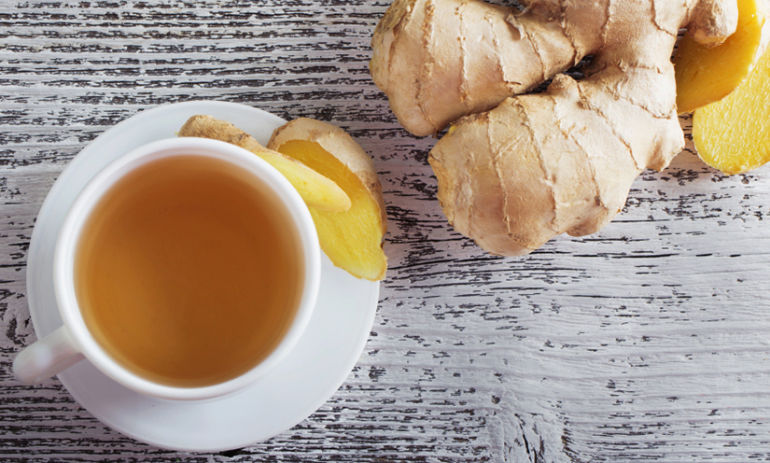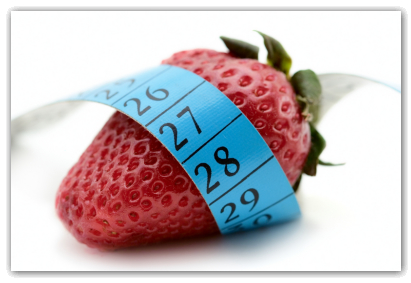7 Signs Your Gut Needs Healing + How to Do It: A Doctor Explains

As an integrative neurologist, I'm fascinated by the connection between the brain and gut. And what I’ve found after working with thousands of patients over the years is that a smart brain requires a smart gut.
People don’t think of the gut as having intelligence — but it does. The enteric nervous system (ENS), or "second brain," in our gut has about the same number of nerve cells as the entire spinal cord, and just like the brain, the gut sends and receives nerve impulses, records experiences, and responds to emotions. The ENS and the brain communicate all the time.
We used to believe that the ENS was a kind of servant to the brain, doing what the brain asks. But now we know that the brain is actually doing most of the listening and the ENS is probably doing 90 percent of the talking.
So if your gut isn't healthy, it can have an impact on more than just your digestion. Here are seven signs that indicate your gut isn't up to speed:
- I get a lot of gas, especially after eating.
- My tongue is coated with a thick whitish film, especially in the morning.
- In the morning, I feel foggy and muddled. It takes me a while to feel like I’m really awake.
- My body feels heavy and slow.
- I feel tired during the afternoon, even when I've had eight hours of sleep.
- I get colds and other minor viruses frequently. It seems like I catch everything.
- I feel lazy and unmotivated. I can’t seem to break out of this feeling of malaise.
If these show that your gut isn’t as "smart" as it should be, then your ENS likely needs retraining.
Just as you benefit from having a smarter brain, you also benefit from having a smarter gut. While research in this area is still new, as I explain in my new book, The Prime: Prepare and Repair Your Body for Spontaneous Weight Loss, one of those great benefits to making the gut smarter is easier weight loss.
To lose weight, I believe you need to fix the digestive system, cultivate a gut environment that allows good bacteria to flourish, improve nutrient absorption, and reverse the brain’s neuroadaptation to toxic foods so your ENS can start working again.
Here are some of my favorite steps to improving your digestive health and moving your gut to the top of the class:
1. Sip gut-healing tea.
This pleasant-tasting savory tea helps heal the gut lining, improves the absorption of nutrients, and stimulates the lymphatic system. Here’s how to prepare it:
Boil 4 to 5 cups of water in a pot. As the water is heating, add the following to the pot:
- 1⁄2 teaspoon cumin seeds
- 1⁄2 teaspoon coriander seeds
- 1⁄2 teaspoon fennel seeds
Additional options:
- Add 1⁄2 teaspoon fenugreek seeds, if you're having a lot of excess gas.
- Add 1⁄2 to 1 inch peeled fresh ginger, if you'd like to strengthen your digestion even further. Just add it while the water is boiling.
Let the water boil for five to ten minutes with the seeds, depending on how strong you want your tea. Afterward, strain the seeds, then pour the tea into a thermos to keep it hot all day. Sip the tea throughout the day until it’s all gone. Try to finish it before 6 p.m., to keep nighttime bathroom breaks to a minimum.
Why do I recommend this tea? Cumin is an ancient remedy for indigestion, gas, and other digestive issues. It includes potent antioxidants and iron, as well as fiber, and it stimulates the enzymes in the body that facilitate strong digestion.
Coriander is a digestive aid with a pleasant nutty taste. In Ayurveda, coriander is used to treat many intestinal disorders because it helps relieve gas, indigestion and spasms, and reduces inflammation.
Fennel is a remedy for irritable bowel syndrome, and other painful digestive issues because it relaxes the smooth muscle in the digestive tract. It’s also good for relieving excess gas and indigestion. When you chew a few seeds, it has the added benefit of being a breath freshener.
2. Make lunch your largest meal.
Here in the U.S., it's traditional to eat the largest meal in the evening. But according to an ancient Ayurvedic concept, it's actually easier on your digestive system to eat the bulk of your calories in the middle of the day.
In Ayurveda, your agni (digestive fire) is linked to the cycles of the sun. When the sun is the strongest at noon, that's also when your agni is the strongest. So eating more at lunchtime is simply considered more efficient — you absorb more nutrients when your body is running at full steam. Dinnertime is when your body begins to prepare for detoxification, which predominantly occurs during the night when your body is at rest. So if you have a large dinner, not only does it tend to disrupt sleep, but it might also make detoxification less effective because your body expends extra energy breaking down the food.
There are also recent studies to back up this idea, including research that shows eating out of sync with your circadian rhythm, which uses more energy during the day and less energy at night, can contribute to insulin resistance, obesity, and type 2 diabetes. Another study showed that eating a larger breakfast and lunch and skipping or having a small dinner resulted in more weight loss and better blood sugar control than eating six small meals during the day.
3. Drink your fiber.
Most Americans are grossly deficient in fiber, one of the major reasons that sluggish digestion and constipation are such common problems. Most adults only get 15 grams, but women need at least 25 grams of fiber every day, and men need 38 grams. These are minimal daily recommendations — but for optimal health you should be aiming for even more fiber.
There's an easy method I recommend to remedy this issue, and it doesn’t involve heaping bowls of twiggy cereal. Every evening, put 1 teaspoon each of psyllium husks and ground flax seeds in a 12-ounce glass of warm or room-temperature water. Stir it briskly and drink it down quickly (it can get thick if you leave it in the water too long). In thirty seconds, you'll have dramatically boosted your daily fiber intake.
The effect? The bulk you're adding to your digestive system helps suction out the waste for speedy and easy elimination. And fiber is also food for your internal microbiome, the good gut bacteria that will encourage better dietary choices, fat loss and overall health.
Photo Credit: iStock
-
Herbal Supplements for Healthy Weight Loss
Losing weight can be a difficult, frustr
-
Some Highly Productive Weight Loss Recommendations
Excellent physical well being is one of the most important aspects of
-
Fat Loss Quickly! Is It Safe?
Fat Loss quickly and easily is almost im
-
Chris “Mean” Green’s Lose The Gut, Keep the Butt Fat-Burning Leg-Shaping Workout
In my latest two minute installment, I show you simple m
-
Simple Weight Loss Tips To Fit Your Modern Life
All kinds of great ideas for losing weight exist out there, and
-
From Snooki to Beyonce: What You Can Learn from Celebrity Weight Loss
What do Khloe Kardashian Odom, Snooki, Beyonce, Christina Aguilera and
- DON'T MISS
- The Fat Burning Furnace Works for Intermediate Exercisers
- Fat Burning Pills - Do They Really Work?
- What is in a Weight Loss Diet Pill?
- What Is Belviq, the New Weight Loss Drug?
- Can Nuts Equal Weight Loss?
- Studies Identify Relationships Between Sleep And Weight Gain Part 2
- How to Get Skinny Fast
- Boost Your Weight Loss Easily!
- The Beginners Guide To Permanent Weight Loss Part 1
- Information On Choosing Your Personal Training




